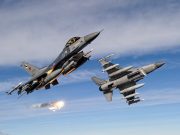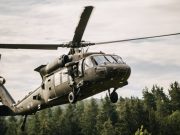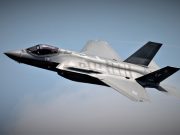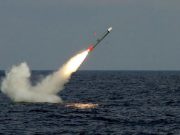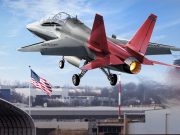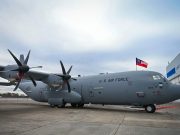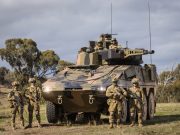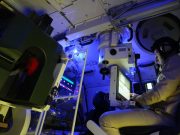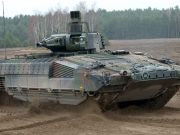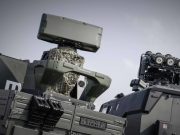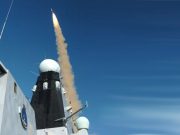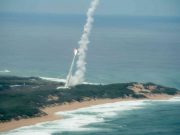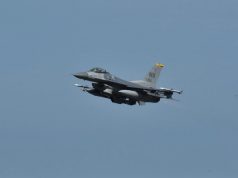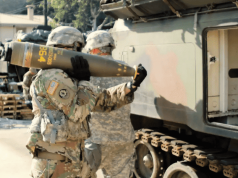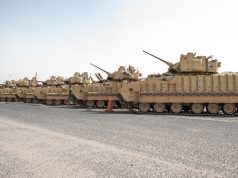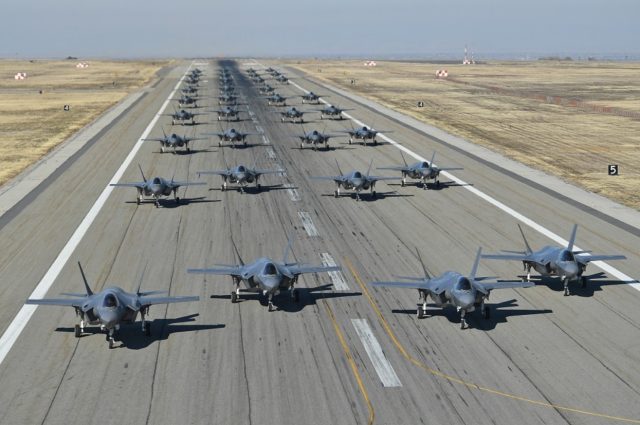
The US defense department announced $600 million in awards on October 8 for 5G experimentation and testing at five US military test sites, in what it says is the largest full-scale 5G tests for dual-use applications in the world.
Each installation will partner military services, industry leaders, and academic experts to advance the department’s 5G capabilities.
Projects will include piloting 5G-enabled augmented/virtual reality for mission planning and training, testing 5G-enabled Smart Warehouses, and evaluating 5G technologies to enhance distributed command and control.
“The department of defense is at the forefront of cutting edge 5G testing and experimentation, which will strengthen our Nation’s warfighting capabilities as well as US economic competitiveness in this critical field. Importantly, today’s announcement demonstrates the Department’s commitment to exploring the vast potential applications and dual-use opportunities that can be built upon next-generation networks,” said Michael Kratsios, Acting Under Secretary of Defense for Research and Engineering.
The test sites include: Hill Air Force Base, Utah; Joint Base Lewis-McChord, Washington; Marine Corps Logistics Base Albany, Georgia; Naval Base San Diego, California; and Nellis Air Force Base, Las Vegas, Nevada.
The bases were selected for their ability to provide streamlined access to spectrum bands and mature fiber and wireless infrastructure, support new or improved infrastructure requirements, and conduct controlled experimentation with dynamic spectrum sharing.
Joint Base Lewis-McChord and 5G-enabled augmented reality testing
Joint Base Lewis-McChord will support rapid fielding of a secure 5G network to provide a test bed for experimentation with a 5G-enabled augmented reality/virtual reality (AR/VR) capability for mission planning, distributed training, and operational use.
GBL System Corp. will deliver its Samsung-based 5G testbed to provide high capacity, low latency coverage at JBLM (approximately 3 sq. mi.) and Yakima Training Center (approximately 15 sq. mi.). AT&T will develop a system to allow use of 5G connectivity with present training devices, while Oceus Networks will develop and field a commercial off-the-shelf (COTS) based 5G handheld called tough mobile device-5G (TMD-5G) for the field training environment. Booz-Allen Hamilton will deliver an Army-owned, multivendor prototype for combat-like training using AR/VR technology in 5G-enhanced training locations based on an open systems architecture (OSA).
5G smart warehousing (transshipment) test at Naval Base San Diego (NBSD), California
The objective of this project will be to develop a 5G-enabled smart warehouse focused on transshipment between shore facilities and naval units, to increase the efficiency and fidelity of naval logistic operations, including identification, recording, organization, storage, retrieval, and transportation of materiel and supplies. Additionally, the project will create a proving ground for testing, refining, and validating emerging 5G-enabled technologies.
AT&T will deploy within 9 months a network based on commercially available equipment to support 4G and 5G utilizing cellular spectrum in both the sub-6 GHz and millimeter wave bands. GE Research 5G-enabled applications will support real-time asset tracking, warehouse modeling and predictive analytics, while Vectrus Mission Solutions Corporation applications will provide capabilities for inventory management, network security, robotic material moving, & environmental sensing. Deloitte will support a wide array of applications including autonomous mobile robots, unmanned aircraft system (UAS) with autonomous drones, biometrics, cameras, AR/VR, and digitally tracked inventory.
Vehicular 5G smart warehousing at Marine Corps Logistics Base (MCLB) Albany, Georgia
This project will develop a 5G-enabled smart warehouse focused on vehicular storage and maintenance, to increase the efficiency and fidelity of MCLB Albany logistic operations, including identification, recording, organization, storage, retrieval, and inventory control of materiel and supplies. Additionally, the project will create a proving ground for testing, refining, and validating emerging 5G-enabled technologies.
Nellis Air Force Base, Nevada – Distributed Command and Control
The objective of this effort is to develop a testbed for use of 5G technologies to aid in air, space, and cyberspace lethality while enhancing command and control (C2) survivability. Specifically, a 5G network will be employed to disaggregate and mobilize the existing C2 architectures in an agile combat employment scenario.
AT&T will be providing an initially fixed then mobile 5G environment with high capacity and low latency to support the connectivity requirements associated with the mobile combined air operations centers.
Hill Air Force Base, Utah – Dynamic Spectrum Utilization
This project addresses the challenge of enabling Air Force radars to dynamically share spectrum with 5G cellular services. The project will develop sharing/coexistence system prototypes and evaluate their effectiveness with real-world, at-scale networks in controlled environments. The objective of this effort is to develop effective methodologies to allow the sharing or coexistence between airborne radar systems and 5G cellular telephony systems in the 3.1 – 3.45 GHz band.


